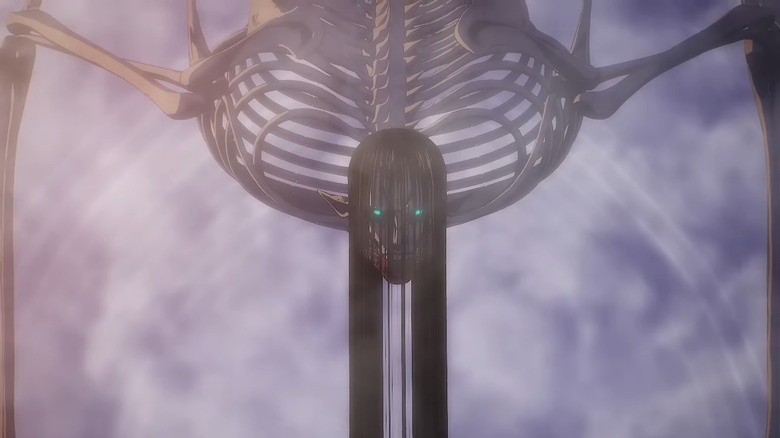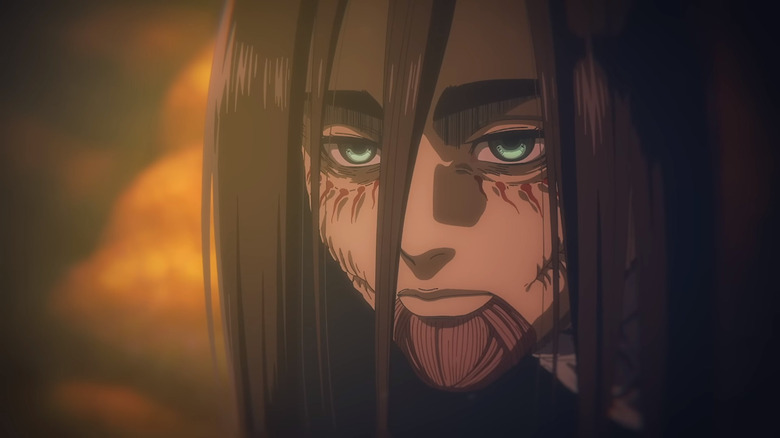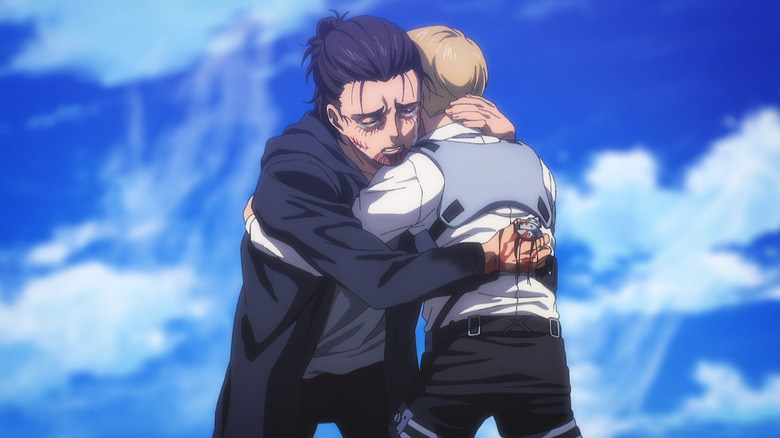Attack On Titan Creator Always Knew How It Would End – And That Was The Problem
After 10 intense years of heartbreak, shock, horror, and excitement, "Attack on Titan" has finally come to an end. The hugely popular anime ended with a feature-length finale that brought to a close the war against Eren Jaeger and his army of Titans, closing the book on the defining anime of the past decade.
The anime is based on the popular manga of the same name by Hajime Isayama, which ended in 2021. Speaking with The New York Times, Isayama explained that the seeds for this ending were sown from the start. "The story that starts with the victim who then goes through this story and becomes the aggressor," he said. "That is something I had in mind right from the get-go."
Ending a long-running show is no easy task. Everyone has their own idea of how the story will and should end, and meeting those expectations is daunting. In recent years, in the wake of frustration with shows like "Lost," the idea that the best way to end a story is to plan it out from the beginning has gained a lot of traction with certain corners of fandom. The reasoning is that, if you plan a story in advance, you can foreshadow it ahead of time to make it more satisfying, and ensure plot holes are resolved before the ending.
Of course, we've seen the fallacy of that idea time and time again. "Breaking Bad" was praised as having one of the best final seasons in the history of TV, but Vince Gilligan and his team did not plan it out — at least, not all of it. Meanwhile, the creators of "Game of Thrones" followed an ending they got from author George R. R. Martin years ahead of its premiere, and it is still considered one of the worst endings in modern TV.
'Writing manga is supposed to be freeing'
When it comes to "Attack on Titan," the ending being thought of ahead of time was both a blessing and a curse. You can see the seeds of Eren's epic heel turn right from the start, even if they don't properly come to fruition until the story's big tonal change in season 4. Thematically, and from a story and character perspective, this is the only way "Attack on Titan" could end — unless you ask Isayama himself.
That's because, as the manga author told The New York Times, knowing the ending became a burden for him, just as Eren's power of prescience became a burden. "When I first started this series, I was worried that it would probably be canceled. It was a work that no one knew about," Isayama explained. Back when the "Atack on Titan" manga first debuted, its publisher Kodansha was going through financial problems. "But I had already started the story with the ending in mind. And the story ended up being read and watched by an incredible number of people, and it led to me being given a huge power that I didn't quite feel comfortable with."
"It would have been nice if I could have changed the ending. Writing manga is supposed to be freeing. But if I was completely free, then I should have been able to change the ending. I could have changed it and said I wanted to go in a different direction."
Endings and beginnings
Granted, Isayama isn't saying that he is displeased with the ending he wrote, but it makes sense that he'd feel restricted by having the ending locked in so early. He has talked about changing the ending in the past, once revealing that he originally wrote a bleak ending like "The Mist," but wanted to change into something more adventure-like. He's even talked about changing his portrayal of Eren based on Yuki Kaji's performance in the anime.
"The fact is that I was tied down to what I had originally envisioned when I was young," Isayama continued. "And so, manga became a very restrictive art form for me, similar to how the massive powers that Eren acquired ended up restricting him."
Whether he had another ending in mind that he thought he couldn't explore, or he simply grew older and changed his worldview, it is quite sad to see such a popular author feel like he doesn't even have control over his narrative. This is perhaps why Hideaki Anno decided to revisit "Neon Genesis Evangelion" 20 years later with a series of films that end drastically different than the anime. "I changed from back then," Anno said when releasing the last of the films. "So, I thought that I could do something different and interesting from before."
The ending of "Attack on Titan" we got is the perfect conclusion to the story presented in the anime and manga, a bleak yet still hopeful apocalyptical tale. That being said, it will remain an interesting "what if" to imagine what Isayama could have come up with is he's had the freedom to change the ending to his story.


